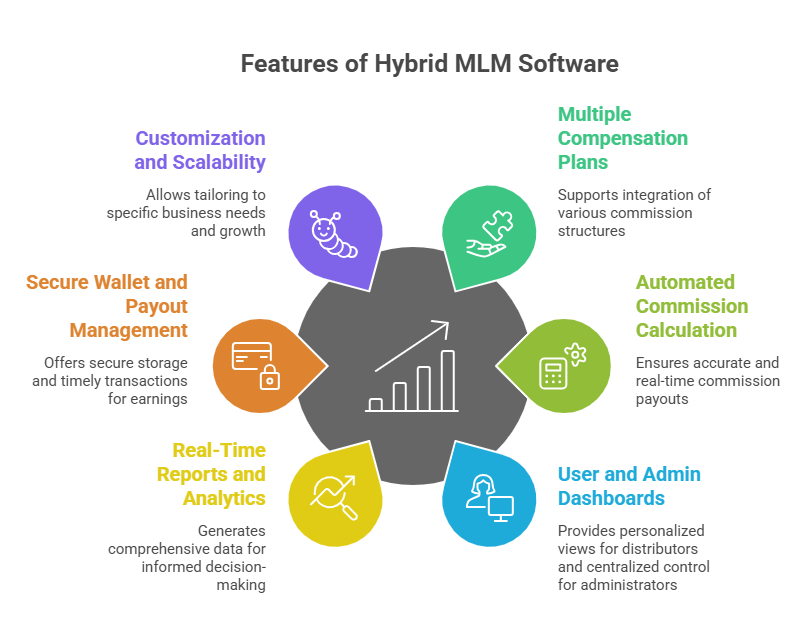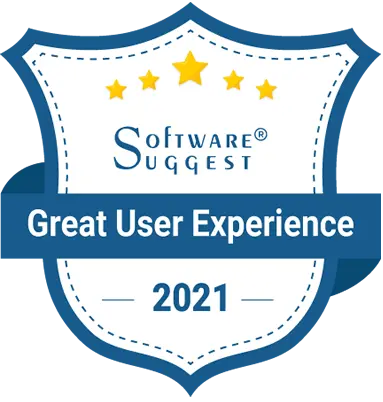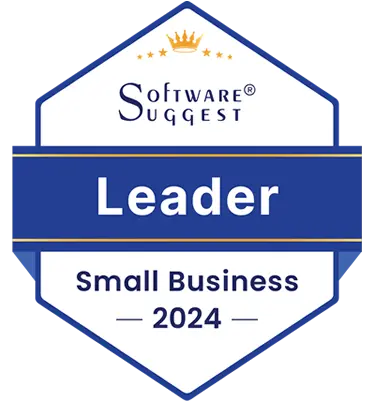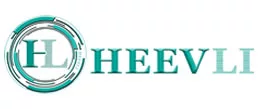How Hybrid MLM Plan Network Marketing Software Can Grow Your Business
The network marketing industry has evolved significantly over the past decade. Traditional single-plan compensation structures are no longer sufficient to meet the growing expectations of distributors and businesses. Today’s MLM companies require flexibility, scalability, automation, and transparency to remain competitive. This is where Hybrid MLM Plan Network Marketing System plays a vital role.
Hybrid MLM plans combine multiple compensation structures into a single unified system, allowing businesses to design powerful and attractive commission models. With the support of advanced MLM software, companies can manage complex payout structures efficiently while offering distributors greater earning opportunities. This article explains how Hybrid MLM Plan System helps grow your business, improves network stability, and supports long-term success.
What Is a Hybrid MLM Plan?
A Hybrid MLM Plan is a modern compensation structure in network marketing that combines two or more MLM plans into one system. Instead of relying on a single model, businesses integrate multiple plans to create a more flexible and rewarding income structure.
Traditional MLM models such as Binary, Matrix, or Unilevel each have specific advantages, but no single plan can meet all distributor expectations. Hybrid MLM plans overcome this limitation by combining the strengths of different compensation models.
For example, businesses may use combinations like Binary + Unilevel, Matrix + Generation, or Binary + ROI + Referral to offer multiple earning opportunities.
This approach allows distributors to earn through referrals, team development, sales performance, and leadership achievements. As a result, motivation and engagement increase across the network.
Hybrid MLM plans are ideal for modern network marketing companies as they provide better income distribution, higher transparency, and long-term business sustainability.
Key Features of Hybrid MLM Plan Network Marketing System
A powerful Hybrid MLM system includes a wide range of features designed to simplify operations, enhance transparency, and improve overall business performance. These features help companies manage complex compensation structures efficiently while providing a seamless experience for both administrators and distributors.
-
Multiple Compensation Plan Integration
The software supports the integration of multiple MLM plans within a single platform, allowing businesses to combine different commission structures effortlessly. This flexibility enables companies to design customized compensation strategies that align with their business goals. By managing multiple plans under one system, businesses can avoid operational complexity and maintain smooth commission flow across the entire network. This is especially effective when used alongside an mlm downline manager, which simplifies tracking and managing distributor hierarchies.
-
Automated Commission Calculation
Manual commission processing is time-consuming and highly prone to calculation errors, which can lead to disputes and loss of distributor trust. Hybrid MLM platform automates the entire commission calculation process in real time. This ensures accurate payouts, reduces administrative workload, and maintains complete transparency in income distribution. Many companies choose mlm software at monthly charge plans to make this automation affordable and predictable.
-
User and Admin Dashboards
Distributors receive personalized dashboards that provide a clear view of earnings, referral status, team structure, and performance metrics. These dashboards help users track their progress and stay motivated. At the same time, administrators gain centralized control over user management, plan configuration, commission settings, and system monitoring through a powerful admin panel.
-
Real-Time Reports and Analytics
The system generates comprehensive real-time reports covering sales performance, network growth, commission distribution, and user activity. These insights help businesses analyze trends and identify growth opportunities. With accurate analytics, management can make informed, data-driven decisions to improve productivity and profitability.
-
Secure Wallet and Payout Management
Integrated e-wallet functionality allows distributors to store, track, and withdraw their earnings securely. The system supports multiple payout methods, ensuring timely and transparent transactions. Advanced security measures protect financial data, reduce fraud risks, and build confidence among users.
-
Customization and Scalability
Hybrid MLM platform can be fully customized to match specific business requirements, compensation rules, and branding needs. As the organization grows, the system can easily scale to support increased users, transactions, and data volume. This ensures long-term stability without the need for frequent software replacement or redevelopment. For companies seeking structured growth, matrix mlm software best ladder/forced matrix mlm plan options are often recommended to optimize network depth and team incentives.

How Hybrid MLM platform Helps Grow Your Business
Hybrid MLM Plan System contributes directly to business growth by providing structured, automated, and flexible ways to manage distributor networks. By combining multiple compensation strategies into one platform, it not only motivates distributors but also improves operational efficiency and accelerates revenue generation. Let’s explore the key ways Hybrid MLM platform helps your business expand.
-
Enhanced Income Opportunities
Hybrid MLM plans offer distributors multiple ways to earn, including referrals, team building, leadership bonuses, and performance-based rewards. This variety encourages distributors to remain active, engaged, and invested in growing the network. As members see tangible income potential across different activities, it results in higher distributor satisfaction, increased participation, and stronger overall sales performance.
-
Improved Distributor Retention
Retention is one of the most significant challenges in network marketing, and Hybrid MLM plans are specifically designed to address it. By offering rewards at multiple levels of involvement, even beginners can start earning quickly, while experienced leaders benefit from deeper network commissions. This balanced structure keeps distributors motivated long-term, reduces dropouts, and strengthens the overall network foundation.
-
Flexible Compensation Structures
The market is constantly changing, and so are distributor expectations. Hybrid MLM platform allows businesses to modify compensation rules without disrupting the system. Companies can introduce new bonuses, seasonal promotions, or special incentives on the fly. This flexibility ensures that the compensation plan remains competitive, supports continuous growth, and fosters innovation within the organization.
-
Faster Network Expansion
Distributors are more likely to recruit and build teams when they see multiple ways to earn income. Hybrid MLM plans encourage both width and depth growth, helping businesses expand their networks organically. The ability to generate income from team performance, direct referrals, and leadership roles motivates distributors to invest in recruitment and training, resulting in a more robust and sustainable network.
-
Automated and Error-Free Operations
Manual calculations and administrative work often lead to errors, disputes, and delayed payouts. Hybrid MLM platform automates registration, commission calculations, reporting, and payouts, eliminating errors and ensuring timely payments. Accurate and transparent operations build trust among distributors, reduce management overhead, and free up resources for strategy, marketing, and business expansion.
Benefits of Using Hybrid MLM Plan System for Companies
Hybrid MLM platform not only enhances distributor satisfaction but also provides substantial operational and financial advantages for businesses.
-
Increased Operational Efficiency
The software automates key processes such as registration, genealogy tracking, commission computation, reporting, and payouts. This reduces reliance on manual labor, minimizes errors, and allows managers to focus on strategic growth rather than administrative tasks.
-
Reduced Administrative Costs
By eliminating repetitive manual processes, Hybrid MLM platform lowers operational expenses. Businesses save money on labor, reduce human errors, and optimize resource allocation, which ultimately improves profitability.
-
Transparent System Management
Real-time dashboards and reporting features allow distributors and administrators to track performance and earnings with complete transparency. Clear visibility into commission and network activity improves trust, enhances brand credibility, and strengthens distributor loyalty.
-
Centralized Business Control
Administrators gain a centralized view of the entire network, enabling them to monitor performance, adjust compensation plans, manage users, and control payouts from a single platform. This centralization simplifies decision-making and ensures consistent management across the organization.
-
Global Business Enablement
Hybrid MLM platform supports multi-currency, multilingual interfaces, and international payment options. This functionality allows businesses to expand globally, enter new markets, and manage international distributors efficiently without worrying about technical limitations.
Hybrid MLM platform for Different Business Models
Hybrid MLM plans are highly versatile, making them suitable for a wide range of industries and business models.
-
E-commerce MLM
This system integrates seamlessly with online stores, allowing businesses to reward distributors based on product sales, referral activity, and team purchases. This ensures smooth commission management for retail-based network marketing.
-
Crypto MLM
With secure wallet integration and robust transaction management, Hybrid MLM platform supports cryptocurrency-based MLM platforms. This enables businesses to leverage emerging markets and modern payment systems securely and efficiently.
-
Direct Selling Companies
Traditional direct selling businesses benefit from Hybrid plans that combine unilevel and leadership-based commissions. This approach improves distributor motivation and ensures that earnings reflect both individual and team performance.
-
Subscription-Based MLM
Recurring revenue models are easy to implement with Hybrid MLM platform. Businesses can automate subscription-based commissions, ensuring consistent payouts while reducing administrative workload.
Why Choose Daani’s Hybrid MLM Plan System
Daani offers advanced Hybrid MLM Plan Network Marketing System designed to address the evolving needs of modern MLM businesses. Its features combine flexibility, security, scalability, and usability to support sustainable growth.
-
Highly Customizable Plan Combinations
Daani’s platform allows businesses to mix multiple compensation plans according to their marketing strategy. This flexibility ensures the compensation system can be tailored to the company’s goals and distributor expectations.
-
Secure and Robust Architecture
This system is built with advanced security protocols to protect sensitive data, transactions, and business logic. This ensures that both distributors and administrators can trust the system’s integrity.
-
Scalable for Long-Term Growth
Whether a business is a startup or managing a global network, Daani’s software scales effortlessly. Increased users, transactions, and network complexity are handled seamlessly, supporting sustainable growth.
-
User-Friendly Interface
The platform is designed for ease of use, with intuitive navigation for both distributors and administrators. This improves adoption, reduces training time, and ensures smooth daily operations.
-
Dedicated Technical Support
Daani provides continuous technical support and regular system maintenance to ensure uninterrupted operations. Quick resolution of issues and proactive updates keep the system reliable and future-ready.
Key Factors to Consider Before Choosing Hybrid plan platform
Before investing in Hybrid plan platform, businesses should carefully evaluate several critical factors to ensure long-term success.
-
Customization Capability
The software must allow future modifications, enabling businesses to adapt compensation plans and features without complete redevelopment. This ensures flexibility as the business evolves.
-
Security and Compliance
Data protection, transaction security, and compliance with regional regulations are essential to maintain trust and avoid legal risks. A robust security framework safeguards both company and distributor interests.
-
Integration Options
The system should seamlessly integrate with payment gateways, e-commerce platforms, CRM systems, and mobile applications. Integration ensures smooth workflows and avoids operational bottlenecks.
-
Performance and Scalability
The software must handle increasing user volumes, transactions, and data processing without performance issues. Scalability is critical for businesses looking to expand domestically or globally.
-
Ongoing Support and Updates
Reliable technical support and regular updates are crucial for long-term system stability. Continuous improvement ensures the software adapts to emerging technologies and changing business requirements.
Explore Our Software
Unlock the full potential of your network marketing business with Daani’s Hybrid Plan System. Manage multiple compensation plans, automate commissions, and track distributor performance—all from one secure, scalable platform.
Key Features:
- Combine Binary, Matrix, Unilevel & more
- Real-time commission automation
- Personalized dashboards & analytics
- Secure wallet & payouts
- Fully customizable & scalable
Empower your team, boost engagement, and grow your network effortlessly.
Try our software by click on Hybrid MLM Plan Network Marketing Software
Conclusion
Hybrid Plan Network Marketing System has become a powerful growth engine for modern network marketing businesses. By combining multiple compensation models, automating operations, and enhancing distributor motivation, Hybrid MLM systems create a strong foundation for long-term success.
For businesses aiming to scale faster, retain distributors, and operate efficiently, investing in a reliable Hybrid MLM platform solution is no longer optional—it is essential. With the right technology partner like Daani, companies can build sustainable networks, increase profitability, and stay ahead in the competitive MLM landscape.
Client Testimonials
Chief Operating Officer
“Since we implemented Daani’s Hybrid MLM Plan System, our entire compensation process has become seamless and transparent. We were able to customize multiple plan combinations that perfectly fit our business model, and distributors now have more clarity about their earnings than ever before. Support from the Daani team has been exceptional — always responsive and solution‑oriented.”
— Jessica Thompson
VP of Sales & Marketing
“Daani’s MLM platform transformed how we manage our network. The automated commission calculations and real‑time reporting saved us countless hours of manual work, and the scalability has allowed us to expand into new states without technical bottlenecks. Our distributor engagement metrics have never looked better.”
— Michael Carter
Director of Business Development
“We chose Daani’s Hybrid MLM platform because we needed flexibility across compensation models, and the results exceeded our expectations. The secure wallet integration and multi‑currency support helped us launch international operations smoothly. It’s reliable, intuitive, and backed by a team that truly understands network marketing.”
— Karen Mitchell,
Frequently Asked Questions (FAQ)
A Hybrid MLM plan combines two or more compensation structures—like Binary, Unilevel, or Matrix—into a single system. Unlike traditional single-plan models, Hybrid plans provide multiple earning opportunities, improve distributor motivation, and allow businesses to create flexible, customized compensation strategies.
The software automatically calculates commissions in real time based on the configured plan rules. This eliminates manual errors, ensures accurate payouts, and allows distributors and administrators to view earnings transparently through dashboards, reducing disputes and administrative workload.
Yes. Hybrid MLM platform is highly customizable to fit various industries, including e-commerce MLM, crypto MLM, direct selling, and subscription-based MLM. Companies can adjust compensation structures, bonuses, and reward systems to match their specific business needs.
Absolutely. Daani’s platform is designed to scale with your business. It can handle increased users, transactions, and network depth, making it suitable for startups, national expansion, and even international operations without compromising performance or reliability.
Security is a top priority. Daani’s software uses advanced encryption, secure wallet integrations, and compliance measures to protect sensitive distributor data and financial transactions. This ensures a safe, trustworthy environment for both administrators and distributors.
Daani offers continuous technical support, regular software updates, and proactive maintenance to ensure smooth operations. The support team assists with configuration, troubleshooting, and system optimization, keeping your MLM business running efficiently at all times.










